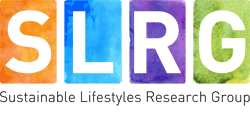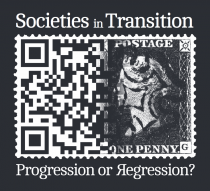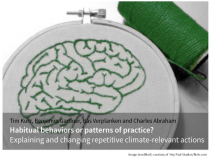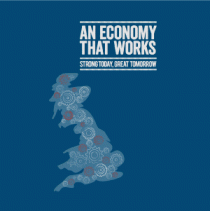- About
- Team
- Projects
- Children and the Environment
- ELiCiT (Exploring lifestyle changes in transition)
- Foundations for Sustainable Living
- HABITs
- Mapping Rebound Effects
- PASSAGE (Prosperity and Sustainability in the Green Economy)
- Policy Dialogue
- Price Responsiveness of Demand in Energy
- Resilience and Sustainable Lifestyles
- Sustainability Transitions in Food Systems
- Sustainable Living in Remote Rural Scotland
- Publications
- News
- Events
Foundations for Sustainable Living
Project Team: Tim Jackson and the SLRG team

Audio: Tim Jackson, SLRG Synthesis for SLRG Dissemination Event | 3 June 2014
The aim of the Foundations project was to synthesise findings from across the SLRG portfolio and begin to establish an understanding of the underlying foundations for sustainable living. A series of workshops, working papers and discussions held over three years provided the basis for this synthesis. The dissemination workshop continues that process.
The overarching aim of SLRG has been to seek a better understanding of the dynamics of human behaviours and practices and to explore how these relate to notions of sustainability. It has been concerned with developing explanations of present behaviours and practices; and understanding how these are socially constituted and how they can change. A robust exploration of these questions requires us to address social psychological variables: values, goals, attitudes, motivations, cognitive functions; and also to explore structural factors: institutions, infrastructures, systems of provision. It also demands an understanding of the relationship between these two things.
The portfolio of projects within SLRG has each addressed some aspect of this complex mix of factors. Some have explored the nature of change processes, seeking to find opportunities for policymakers to intervene creatively in transition. Others have explored the role of community and of civil society in effecting change. We have also examined some of the economic aspects of households‘ and citizens’ responses to change.
Our findings support the possibility that moments of transition provide tentative opportunities for policy to intervene in support of sustainability. But these windows of opportunity are narrow. Change itself is often a complex process of evolution, rather than a decisive moment; and people’s own priorities in transition often obscure the possibilities for intervention. Policies that support people in transition and offer multiple benefits are more likely to be successful than simplistic one-off interventions. Similar conclusions can be drawn about the potential for communities to engage in change. Policy support for community-based change is vital. But the processes of community based change – and the interventions of civil society in support of change – are again complex. The strength and resilience of community is an end in itself. Directive instrumental change can derail these benefits. Simplistic policy prescriptions can undermine or ignore the potential for civil society to support and incubate change.
An understanding of the institutional and structural context of people’s lives is vital if the transition to sustainable living is to become a reality. Actions in one place can generate either resistance or spill-over in others. The money households save from investing in energy efficiency can be spent on energy-consuming goods and services – or it can be invested in renewable energy funds. The financial context of savings and investment emerges as a key element in the transition to sustainable lifestyles, highlighting the critical influence of the wider economy on people’s lives and aspirations. Policy initiatives that ignore this context will gain little traction.
Ultimately, the goal of sustainable living requires a robust sense of social context, a sophisticated approach to governance and a clear understanding of change processes.
Contact
For further details please contact Tim Jackson.














